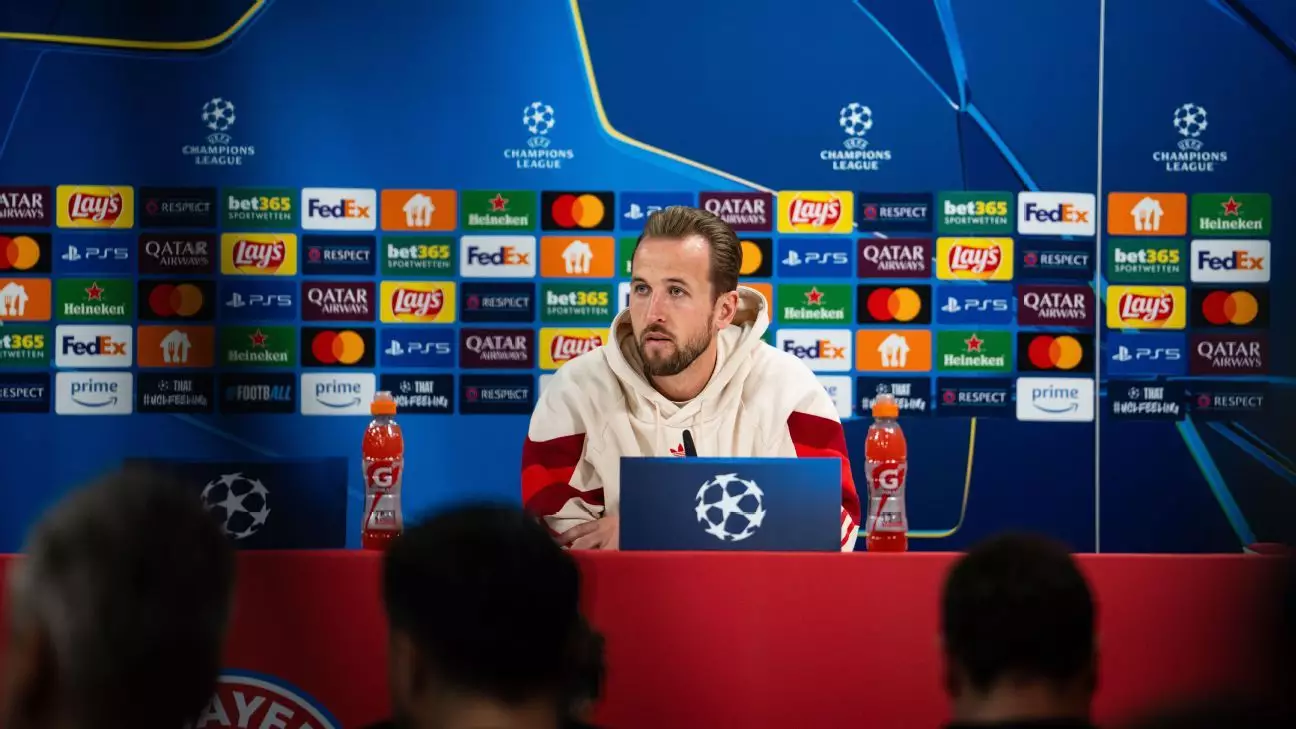Former German midfielder Dietmar Hamann’s remarks on Harry Kane’s performance have stirred quite a bit of debate in football circles. Hamann, who has a decorated history with clubs like Bayern Munich and Liverpool, implied that Kane, the England captain, has underperformed in crucial matches. His critique highlights a long-standing expectation for top strikers to consistently deliver in high-stakes scenarios, a sentiment fueled by Kane’s impressive statistics since moving to Bayern Munich. While one can see the rationale behind Hamann’s statements, it raises pertinent questions about the pressures placed on players and their nuanced roles within a team.
Since his transfer from Tottenham Hotspur to Bayern Munich in 2023, Kane has amassed an astounding record: 64 goals and 21 assists in just 62 matches. That translates to nearly a goal per game, showcasing his scoring prowess and value as a playmaker. Moreover, his debut season in the Bundesliga was particularly noteworthy, as he clinched the coveted Torjägerkanone award after netting 36 goals. In the current season, Kane continues to shine, having scored 20 goals in 17 matches, including dazzling hat tricks against teams like Holsten Kiel and Stuttgart. His performance secured him the title of the fastest player to reach 50 Bundesliga goals, marking a significant milestone in his career.
However, despite these remarkable statistics, questions remain regarding his impact in critical matches. The juxtaposition of his scoring achievements against the backdrop of team performance raises larger issues within the realm of football—how individual excellence aligns (or misaligns) with team success.
Hamann’s assertion that Kane “wasn’t brought in to score a hat trick against Darmstadt” hits on an essential aspect of high-level football: expectations. The weight of a significant transfer fee, reportedly around £100 million, carries with it the anticipations of fans, coaches, and analysts alike. For Kane, this pressure is compounded by his previous successes with Tottenham Hotspur and his status as England’s all-time leading goal scorer.
Despite tallying impressive goals, Kane’s apparent underperformance in matches against teams like Bayer Leverkusen, Aston Villa, and during the Champions League quarter-finals has left some question marks about his consistency in pivotal moments. While he did contribute in games like the defeat to Barcelona, the scrutiny remains regarding his ability to shine against elite opposition regularly, as emphasized by Hamann’s remarks.
In response to the criticisms, Kane took the time to clarify his position, asserting that his aim is to contribute to the team’s success beyond just goal-scoring. “I try to help the team in every game,” Kane stated, indicating that his role as a striker involves more than merely putting the ball in the net. This perspective is vital for understanding the multifaceted nature of modern football, where player contributions include creating space, facilitating plays, and providing defensive support.
Kane’s recognition of the importance of team victories is refreshing in an era where individual accolades often overshadow collective success. In today’s game, scoring is just one piece of a much larger puzzle, especially for a player like Kane, who is integral to Bayern’s attacking strategy. His focus on team performance as a whole indicates a mature understanding of his role and significant emotional intelligence—a quality that shouldn’t be overlooked.
As Bayern Munich gears up to host Paris Saint-Germain in their next Champions League match, the stakes couldn’t be higher for Kane. The upcoming match will serve as a litmus test not only for Kane’s abilities but also for the team’s overall coherence and strategy. A strong performance against a formidable opponent like PSG could provide a timely rebuttal to critics and fulfill the expectations of Bayern’s fanbase.
While Harry Kane’s numerical achievements are undoubtedly astounding, the narrative surrounding his performance in big matches underscores the complexities associated with high-level sport. As he continues to navigate the expectations inherent in his position, both fans and analysts alike must recognize the multifaceted nature of a striker’s role. Ultimately, the true measure of success lies not only in individual statistics but also in the team’s triumphs—and that is where every player, including Kane, should focus their ambitions.

Leave a Reply